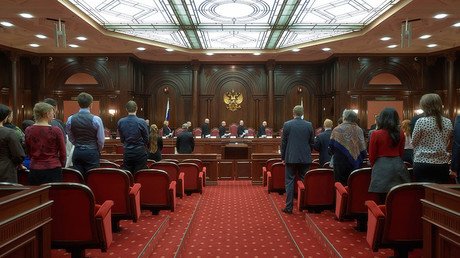Court warns email providers against messing with clients’ correspondence

Russia’s Constitutional Court has issued a ruling in the controversial case of a former employee contesting his sacking over sending confidential documents to his personal email, reminding email providers that they cannot meddle with private data.
The story began in 2016, when Aleksandr Sushkov, who was head of the legal department for the major construction corporation Stroytransgaz, forwarded several emails and electronic documents from his work account to a personal one. The messages contained some classified data as well as personal data of the company’s employees. When senior managers of the company learned about the incident, they fired Sushkov for violating his non-disclosure agreement.
Sushkov contested his sacking in court, claiming that forwarding information to a personal email address cannot be considered disclosure because his user agreement with the email provider banned the latter from reading or leaking his mail. He lost the case, with courts of several instances ruling that an email provider could be considered the owner of data in personal messages of users. One paragraph in the user agreement allows the provider to grant or restrict access to this information. Eventually, Sushkov asked the Constitutional Court to assess if such provisions violate the Russian Constitution, in particular the guaranteed right to confidential correspondence.
This week, the Constitutional Court announced its ruling. It confirmed that the existing Federal Law on Information is fully in line with the constitution, but underlined that it was wrong to interpret user agreements of email service providers as a license for the latter to restrict the access to users’ accounts or disclose their content to third parties.
The court also said in its ruling that Russian lawmakers can come up with more detailed definition of email service providers in future acts and describe the particularities of their relations with clients.
The judges noted, however, that once the classified data gets on to a personal email account it is possible to spread it further without any control or awareness on the part of its initial owner. This means that the action that precipitated Sushkov’s sacking can be seen as a violation of the non-disclosure agreement, even when there is no proof that the classified data got anywhere beyond his personal mailbox. The ruling means that Sushkov’s case must now return to the court of the first instance.
The State Duma representative in the Constitutional Court, Tatyana Kasayeva, said in comments with Izvestia daily that the ruling fully corresponded with the position of the chamber that had been voiced during the court sessions. She also noted that the modern laws concerning data and relations in the digital sphere required regular corrections, due to the constantly changing nature of these phenomena.














